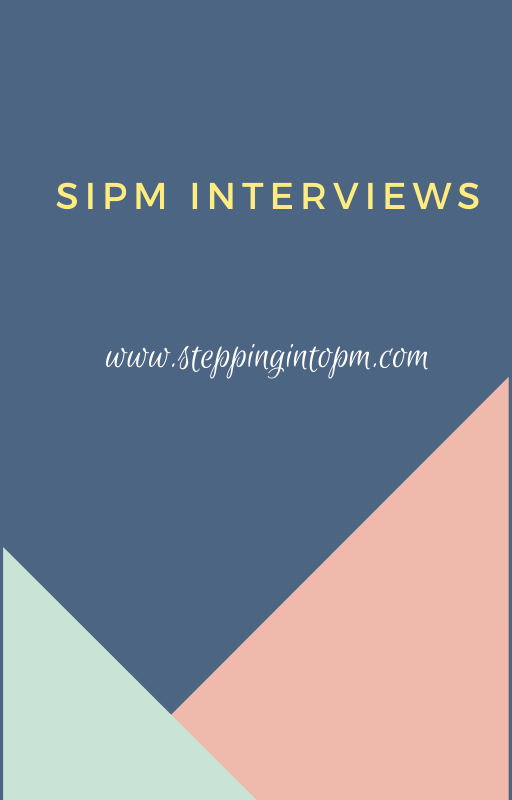Jean-Luc
has been an IS/IT professional for more that 10 years. He holds a MEng in
Telecommunications and a Master degree in Electrical Engineering. Since the
early stages of his career, he's been delivering projects for Fortune 500
companies. He is a PMP and if not diving deep into business objectives to
frame a vision or solve problem, he can be found scuba diving. He has numerous
certifications from entry level to instructor in recreational and technical
scuba diving
He can be found at his twitter handle @LatyrF.
Please tell us what inspired you
take the PMP exam? How many months did it take you to prepare?
I found out about PMP and PMI on LinkedIn four or
five years ago. This certification was nearly unknown in France (nothing on Job
Ad). Two years ago, things had evolved and as I re-entered the job market I
started having a closer look. Not being PMP did not stopped me to get a new job
in an organisation that is promoting the PMP certification along its Project
Managers. I then took the plunge and volunteer to fill an empty seat on a PMP
BootCamp.
It took me a rough 7 calendar months from initiation
to closing, but I really prepared during 2 to 3 months.
Would you share your schedule for
your preparation?
The BootCamp was in June or July 2012 and my
original intent was to sit for the exam in September. I started studying but
not on a regular base. I let myself being to polluted by my job.
I started the BootCamp without even opening the
PMBOK yet after 40 contact hours, the trainer told me that I could take the
exam in a month. I did not felt that confident and started really working with
the PMBOK along with study materials (book and questions) from Rita and TSI.
At the end of the year, the trainer tried to
convince me again that I should go for it but it was not the right time for me.
When PMBOK 5th was announced I gave to myself the deadline: March it will be
and March it has been :-)
What was the most difficult thing
during preparation?
Getting out of work and allowing decent amount of
time to concentrate and study on a regular basis. Studying fortnightly one
or two process does not get you anywhere.
One must focus and study very seriously on a daily
basis compressed in a short period of time after reading once the PMBOK (this
can take time the 1st time to digest the content).
Any 3 tips you would give to the
readers, what they should do to prepare well for PMP?
1. Read the PMBOK completely. This book has tons of
information and prepares your mind to understand the concept of what PMI
believes to be Project Management. Read the Appendix F summary and the
Definitions in the Glossary.
I have read it once in the way it is structured and
then I have read it twice process by process in a logical order as if I was
going through my project from initiating to closing.
2. You need to understand the basic concepts, knowledge areas, process groups and the Mapping to know by reading the question where you are in the project at any particular point. There is no need to memorize all of the ITTO’s but you need to know the important ones.
3. Practice, practice and practice again! Get Prep Questions and Exam simulator and test yourself. I used the questions from Rita Mulcahy. Try to score between 80 and 85% for super confidence yet below that you can still pass the exam.
2. You need to understand the basic concepts, knowledge areas, process groups and the Mapping to know by reading the question where you are in the project at any particular point. There is no need to memorize all of the ITTO’s but you need to know the important ones.
3. Practice, practice and practice again! Get Prep Questions and Exam simulator and test yourself. I used the questions from Rita Mulcahy. Try to score between 80 and 85% for super confidence yet below that you can still pass the exam.
Practice also your brain dump that must include formulas, the 42 processes, the types of contracts, etc.
How does it feel now that you are a PMP?
I can't tell why as it is a
bit irrational for with my education background yet I feel proud and
also more knowledgeable.
Studying the PMBOK was a unique opportunity to
assess the way I was managing project with what is generally recognized as the
best practices. It was also a chance to hover a bit above the dust of
daily work and identity areas of improvements and/or better interest. It's
also a responsibility as these 3 letters after your name set a level of
expectation.
Thank you
To learn about how to get into project management read my book Stepping into Project Management (Welcome to the #PMOT World). To connect with experienced Project Manager's from all over the world, get mentored or shadow for a day see the SIPM Community.




.JPG)


.jpg)





